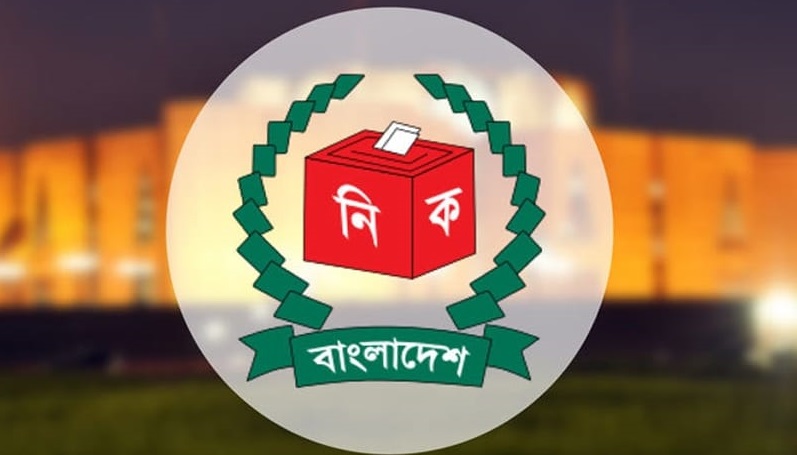The United Nations (UN) was established on October 24, 1945 through the signing of the UN Charter by 51 countries. It was established in 1920 and replaced the later defunct the League of Nations. Currently, 193 countries and two observer countries are members of the UN. In 1974, Bangladesh joined the UN as the 136th member. The objectives of the establishment of the UN include: - ensuring world peace and security by eliminating threats and aggressive tendencies and activities; to strengthen cooperation and friendship among nations through respect for the equal rights of all people; the whole of the economic, social and cultural spheres, building cooperation among nations; cultivating respect and reverence for the freedom and fundamental rights of all, regardless of caste, religion, caste; to ensure the peaceful settlement of international disputes with the help of international law; to recognize and uphold the right of self-determination of every nation and to follow the procedures of the UN for the implementation of the objectives.
Although the UN was founded in 1945 by the initiative of the powerful countries, people around the world and most of the countries supported it during the establishment of the UN. Everyone hoped for a peaceful world order. Peace will prevail in the world after the chaos, war, destruction. Development will be accelerated all over the world this time. Especially the permanent member countries of the Security Council had high expectations. They will cooperate with each other and also help other small or underdeveloped states. Hunger, poverty will disappear, a peaceful world will be established through economic development. Many say that the UN has been successful in many areas in fulfilling its goals and objectives. First, the UN was able to herald the end of colonialism. The role of the UN in granting independence and sovereignty to states is glorious. In the 1960s, the UN supported the liberation struggle of nationalism in Asia and Africa. The people who have fought for their territory, sovereignty, independence, have been supported by the UN. As a result, the world was freed from colonialism and many independent states were born. This initiative of the UN is more positive and universal in establishing basic human rights.
Peacekeeping Mission by UN is a great success. The UN is helping war-torn countries through peacekeeping missions, peacekeeping forces are helping those countries to suppress various regional and sub-regional insurgencies. Bangladesh is playing a big role in this regard. Bangladesh is always zealous in maintaining peace, in favor of peace in all situations and Bangladesh considers peacekeeping as a fundamental task. Bangladesh is properly fulfilling the responsibility assigned to Bangladesh in this UN mission. On the other hand, it can be said that the UN is also carrying out its basic task of maintaining world peace through the peacekeeping mission. It is important to remember these words to protect international peace. However, it should be noted that this process has not always been smooth. There have been many questions about this work. They all tried to solve the problem, but it must be remembered that this is an important achievement of the UN. However, peacekeeping operations are still ongoing. We want this activity to gradually decrease. May there be peace all over the world. However, there is a justification for keeping this force until now.
But today the world's superpowers are engaged in a race to develop nuclear weapons, and Hiroshima and Nagasaki have been depicted for years as an image of the world's worst atrocities. Just hearing the names of Hiroshima and Nagasaki, the minds of peace-loving people of the world become terrified but it needs to end forever. This requires an equal approach to all countries. There can be no law that someone will build up a huge stockpile of nuclear weapons, keep the world at bay and no one can possess them. Therefore, the imperialist attitude of powerful countries should be avoided to establish world peace.
This is why the UN is often called the Tiger made by Paper because many of the functions, goals and objectives of the UN are helpless and limited by the veto power of the five permanent members. The UN cannot take any effective decision and implement it outside the interests of the five permanent members. Every permanent member has nuclear power and organizes many things in the world willy-nilly. The diplomacy and politics of the world revolve at their finger tips. US invasions of Iraq and Afghanistan are vivid proof of this. Moreover, the UN is largely funded by major powers and donor countries play a key role in decision-making, that is why the UN often feels helpless to the Big Five permanent members in establishing world peace.
More than half of the world's people still live below the poverty line. These people are deprived of basic rights and facilities including food, clothing, shelter, education, medical care. But the developed countries are spending trillions of dollars behind the development of deadly weapons to destroy the human race. Instead of doing these things, if the leaders of developed countries spend their time, labor and money today to eradicate the global poverty, illiteracy, deadly disease AIDS and corona epidemic, the world would have benefited and peace would have been achieved. If the budget that is being spent on making weapons, the tiny part of that budget was also spent on improving the living standards of the human race, then the world would be free of hunger and poverty today and this was the true practice of human rights and democracy.
However, the character of states after the establishment of the UN has apparently changed a lot. Earlier the state conflict was inter-state, now it is a conflict between one country and another country. At present, the face of such conflict has changed or can be said to have taken a new form. A changing world in particular has played an important role in creating this context. The dissolution of the then Soviet Union in 1991 created a new situation in the world. Now intra-state conflicts are more dangerous than inter-state conflicts. Foreign countries are not coming and attacking but the conflict within the state itself is leading to the overall conflict. The situation of African countries can be said as an example in this regard, such as Congo, Sierra Leone, Ivory Coast, Sudan and some other new countries such as Yemen, Libya, Syria, Iraq, Afghanistan. Currently, all countries are suffering from internal conflicts. As a result, intra-state conflicts are becoming more intense than inter-state conflicts. Transformation has taken place, the image of conflict and struggle is changing. It is very sad but true that this aspect of conflict is getting more complicated day by day. Although the UN is engaged in peacekeeping missions in various countries, it is also prepared to deal with internal conflicts but it is not showing much success. The kind of conflict that has been going on for years, especially in the Middle East and North Africa, gives us cause for concern.
Now new polarization has started in the world system due to Russia-Ukraine war this year. The single hegemony of the US in international politics is now facing a great challenge. Russia is desperate for a revival of the Cold War between the US and Russia and the rebalancing of the superpowers. The US is building its single hegemony around the world, expanding the NATO military alliance, reforming the European state and economic system, and a new polarization of socio-economic development partnerships has begun in Asia and Africa. The devastation that the US has done in Afghanistan, Syria, Iraq, Yemen, Palestine, former Yugoslavia, Latin America, and various countries in Africa is now becoming clear. Vast wealth was wasted and millions of people died, looting and townships were destroyed, millions of people have been displaced and homeless. Now India, China and Russia are getting closer to advance world peace and prosperity, Saudi Arabia, Mexico, Pakistan, Malaysia, Vietnam are not complying with unilateral sanctions against Russia, the pace of global politics and new polarization is evident in Belarus, North Korea, Iran, Venezuela, Syria and Cuba is against the Western powers and the NATO alliance. The peace-building process of the Russia-Ukraine war hangs between the balancing and competitive attitudes of the two superpowers. In this kind of conflict, the UN is not able to take any effective action outside of the five powers. Many say the UN is too much a hostage to the veto power of the five powers. As a result, although the UN has shown success in many areas, but not to resolve the conflict is the main failure of the establishment of the UN.
Success, failure and effectiveness of the UN

Writer: Banker and Columnist


















